From the first time we visited Costa Rica five years ago, we noticed that local Ticos and many long-time expats were physically and emotionally relaxed around our neurodiverse kids. When one of our kids were in a meltdown, dysregulated or just doing their atypical but normal body movements, instead of stares or unsolicited advice, Ticos stayed regulated and in their own business. We had space to attune and help our kids return to a regulated state. Occasionally, locals offered a water, a hand, or a knowing smile with the phrase, tranquilo. While tranquilo is an adjective, it is also a direct response, a reassurance given between people. It carries the equivalent of “No worries, it’s okay, it’s all good, you’re safe.”
The External Gaze
In the first handful of years parenting a neurodiverse child, the parents’ nervous system is in chronic fight, flight, or freeze mode. Parents are quickly forced to navigate sudden strong emotional responses in themselves and in their child: fear, anger, guilt, sadness, and general overwhelm. Parents sometimes try to bridge the adult neurotypical world while trying to meet the immediate need of the dysregulated young son or daughter. One powerful aspect of parenting a neurodiverse or differently abled child is the external gaze. Even if I intellectually don’t give a rip what others think about my kids or my parenting, there is a weight in this gaze. It viscerally feels like pressure that is only released when we exit the scene or (less likely) respond to the gazer.
I’m not sure if it is the centering of family, the immersion in nature or just some Blue Zone magic, but Ticos in our rural area respond instead of react. It is a Catholic centered country, so there’s a big emphasis on family, and many locals know how much physical labor is involved in the care of children. They don’t hire others to do this work for them. So, when they see you laboring to connect and support your kid, they are empathetic and know that it takes focus and care to do this important work.
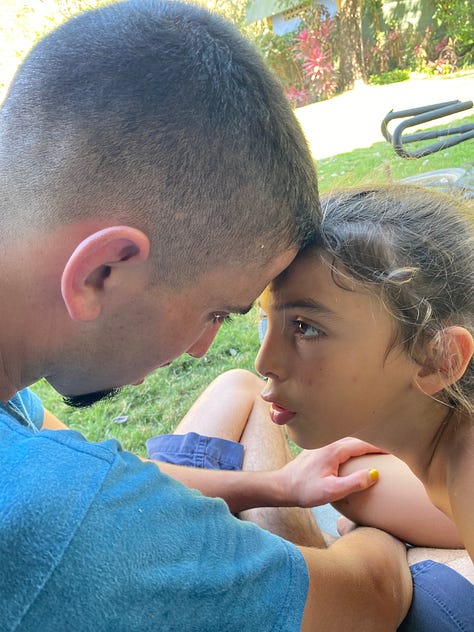
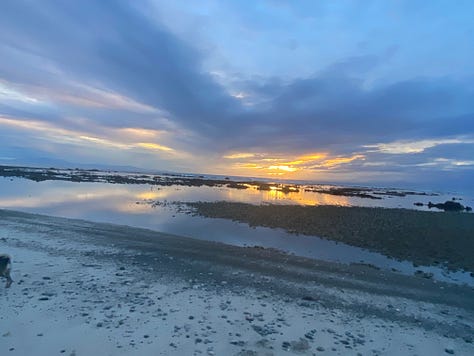
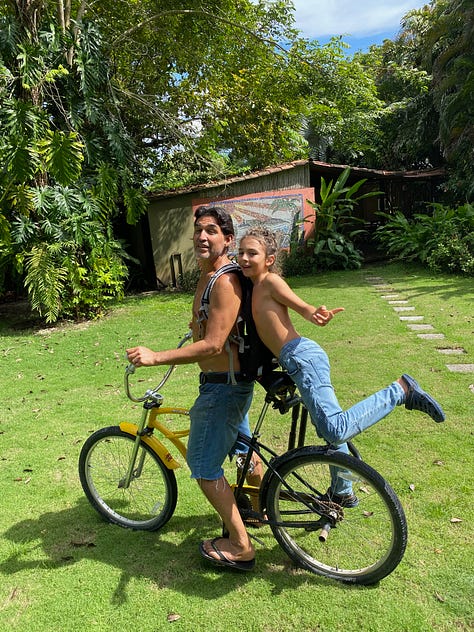

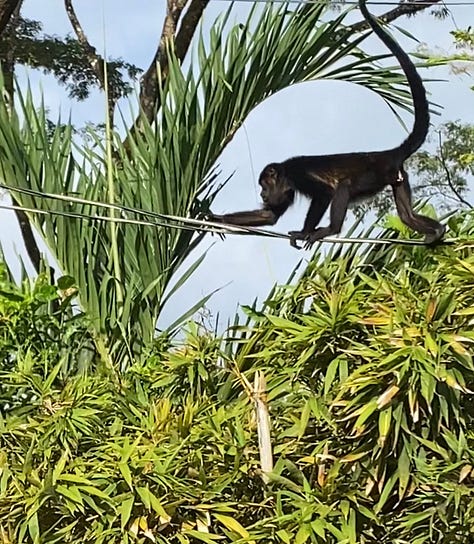
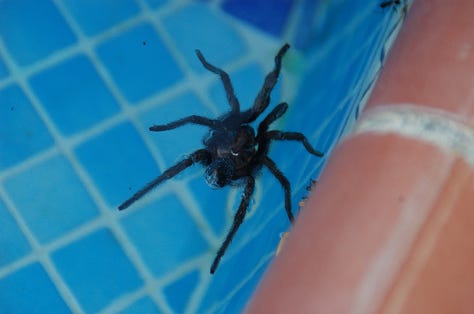
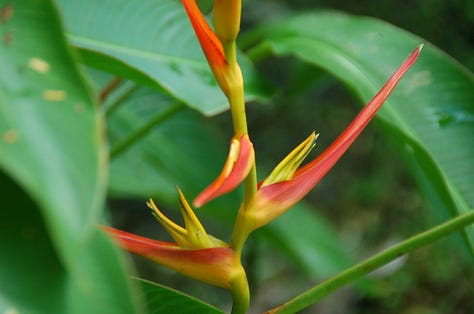
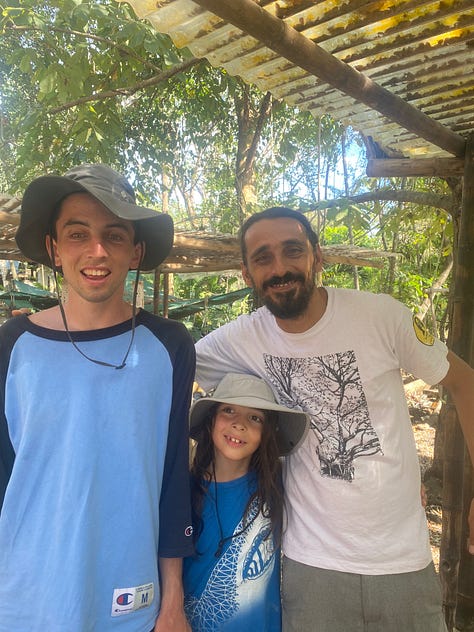
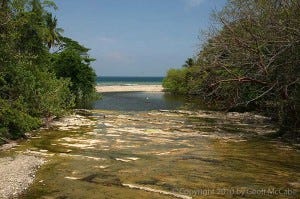
Nature Makes Us Nicer Neighbors
The scientific evidence continues to grow that proves immersing yourself in nature makes you a happier person and better neighbor. (I’ve listed some studies below.) The tropical weather, lush flora, waterfalls, colorful birds, and giant trees are common visual knowledge of Costa Rica that draws tourists. Ticos don’t take any of this beauty for granted. It’s common for taxi drivers and neighbors to pull over to look at a full moon, daily assess the clarity of a river, or gaze at horses in a field. It never gets old, and in fact, it is a type of reverence.
But there’s another type of nature we bow to as well. We live in an open-air house (no air conditioning or fully enclosed spaces) as do most Ticos here in our fishing village, Cabuya. We are used to big bugs, sonorous frogs, sudden deluges, bone shaking thunder, flooding, and intense heat. There are street dogs that lay at your feet in cafés when you eat out. A river of ants may cross your porch, and then move on if you can resist the temptation to intervene. And an electrocuted howler monkey is a major neighborhood death that is not ignored. When there’s a power outage or major storm with downed trees or a flooded road, neighbors help each other. No one waits for “an official” as they likely aren’t coming.
I’m not saying that Ticos are hyper aware and empathetic of neurological differences. In fact, most parents at my son’s local public school had never heard of autism. But even with their lack of medical knowledge, they see and respond to the humanity in our kids and in us with respect. Unlike the ubiquitous phrase, So, what do you do? which feels more like a barometer or assessment. Here, the question is How are you feeling? And, then you are heard, and your response is held. When anyone comes to your home whether it is for a visit or to fix something, you offer café and sit for a bit and talk. Your physical, emotional, and mental health are prioritized here whether you own the house or cut the grass.
Last week, Lazlo got tunnel vision while riding his bike home from the grocery store and accidentally crashed into a woman who was sitting on her motorized scooter and about to take off. After the initial shock of her major cut and bruising, she immediately went to Lazlo, who was crying and upset, and she comforted him. She hugged him and reminded him, “Tranquilo, it was just an accident.” She even checked on his minor scrape. There was no talk of insurance or attorneys. We offered if she needed any medical or other help. She declined, smiled, and ended up coming over for a swim with her son a week later.
Wherever you live, see if you can integrate nature into your day, bringing a little tranquilo to those around you and to yourself.
“How immersing yourself in nature benefits your health” PBS News Hour. January 13, 2020.
Rachel R.Y.Oh et al, “Connection to Nature and Time Spent in Gardens Predicts Social Cohesion.” Urban Forestry & Urban Greening. Volume 74, August 2022.




